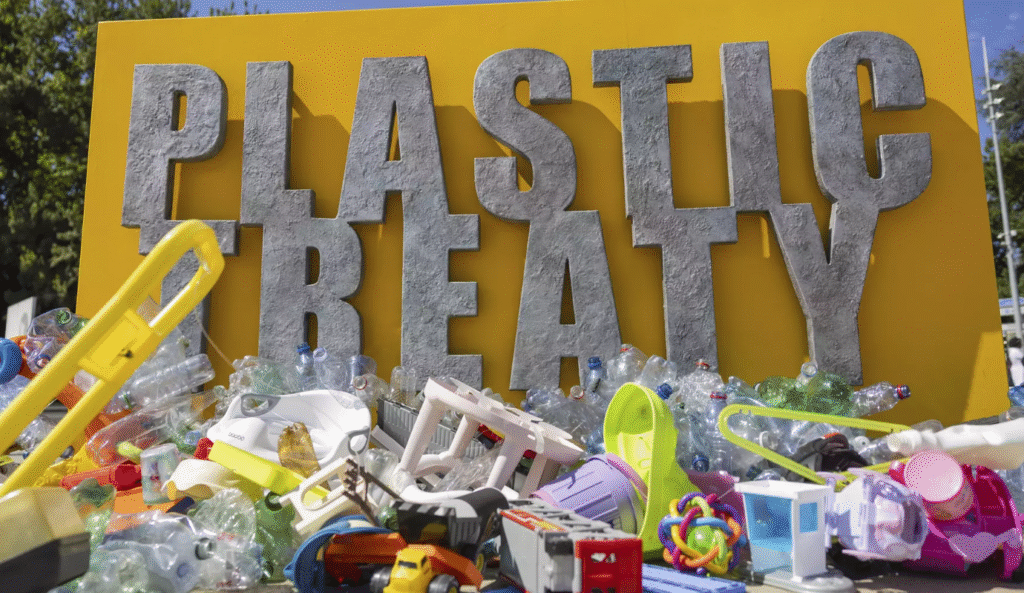Geneva, Switzerland. After two years of tense negotiations, the long-awaited Global Plastics Treaty talks ended without the breakthrough many had hoped for.
Ministers came to Geneva with the chance to strike a historic deal—one that could have curbed plastic pollution at its source.
But the final hours revealed a deep rift. A coalition of nations pushed for urgent and binding cuts to plastic production. On the other side, a small bloc of petroleum-dependent states—backed by powerful petrochemical interests—used procedural tactics to block consensus.
Environmental advocates warned that this deadlock is a dangerous signal that the world is running out of time to confront the accelerating plastics crisis.
Hellen Kahaso Dena, Greenpeace Africa’s Pan-Africa Plastics Project Lead, said governments were putting political and economic interests before people and the planet.
She warned that while leaders stall, “the planet burns, our oceans choke, and our children breathe, drink and eat microplastics.”
This delay, she said, allows polluters to continue flooding the world with plastic. Frontline communities remain trapped in the dire consequences of the crisis.
Still, she believes the opportunity is not lost. “The chance to secure a plastics treaty that protects our health, biodiversity and climate is still within reach,” she said.
Dena urged member states to “up their game, step up with courage, and deliver a treaty that cuts plastic production.” This, she argued, is the only way to relieve communities from the damaging impacts of plastic pollution.
Graham Forbes, Greenpeace Head of Delegation to the Global Plastics Treaty negotiations and Global Plastics Campaign Lead for Greenpeace USA, called the Geneva outcome a wake-up call.ng plastic pollution, he stressed, means confronting fossil fuel interests head-on.
According to Forbes, the majority of governments want a strong agreement. Yet a handful of bad actors managed to use procedural manoeuvres to weaken ambition.
“We cannot continue to do the same thing and expect a different result,” he said.
Forbes warned that the plastics crisis is accelerating. The petrochemical industry, he said, is determined to bury solutions for the sake of short-term profits.
“Now is not the time to blink,” he said. “Now is the time for courage, resolve and perseverance.”
He added that civil society is united in its call for a strong, legally binding treaty. This treaty must cut plastic production, protect human health, provide robust and equitable financing, and end plastic pollution from extraction to disposal.
World leaders, he said, must listen—because the future of our health and the planet depends on it.
The deadlock in Geneva underscores the clash between urgent environmental imperatives and entrenched fossil fuel interests in global plastics policy.
Despite the setback, campaigners believe the path forward is clear: build public pressure on obstructionist governments, amplify the voices of frontline communities, and strengthen political resolve among champion nations.
Only then can the world secure a treaty that puts planetary health above petrochemical profits.



